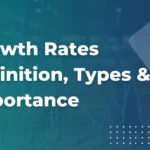Outward Arbitrage: Unlocking Profits Across Borders
Outward arbitrage refers to the practice of moving investments, funds, or operations from a domestic market to international markets to capitalize on better financial opportunities like higher returns, favourable exchange rates, or lower taxes. It’s a strategy widely used by investors and businesses to maximize global opportunities.
In Simple Words outward arbitrage involves moving investments, funds, or resources from a domestic market to international markets where better opportunities, returns, or conditions exist. Whether it’s taking advantage of currency differences, interest rate gaps, or even tax incentives, outward arbitrage is about leveraging global opportunities.
In this article, we’ll break down outward arbitrage step by step, covering its key concepts, how it works, the risks involved, and examples to help you understand its practical applications. By the end of this article, you’ll see why outward arbitrage matters in today’s interconnected world and how you can leverage it.
Key Takeaways from the Article on Outward Arbitrage
- Outward Arbitrage Maximizes Global Opportunities: By leveraging differences in interest rates, exchange rates, tax policies, and regulatory environments between countries, investors and businesses can significantly increase returns and reduce costs.
- Key Areas of Outward Arbitrage Include Interest Rates, Currency, and Taxes: Common strategies involve exploiting higher interest rates in foreign countries, currency fluctuations, and lower corporate tax rates in international markets.
- Risk Management is Crucial for Success: While outward arbitrage offers lucrative opportunities, it comes with risks like currency volatility, political instability, regulatory changes, and liquidity issues. Hedging tools and diversification are essential to mitigate these risks.
- Real-World Examples Illustrate Practical Benefits: From investing in high-yield South African bonds to relocating operations for tax savings, real-world cases highlight how outward arbitrage creates tangible financial advantages.
- Outward Arbitrage is a Strategy for the Globalized Economy: As markets become increasingly interconnected, understanding and implementing outward arbitrage strategies can provide a competitive edge for both individuals and corporations, enabling them to thrive in the global financial landscape.
What is Outward Arbitrage?
At its core, outward arbitrage is about exploiting differences in financial conditions between two or more countries. These differences could involve:
- Exchange rates: Taking advantage of fluctuations in currency values.
- Interest rates: Moving funds to countries offering higher yields.
- Tax regulations: Utilizing jurisdictions with lower tax rates.
- Regulations: Operating in regions with fewer restrictions.
Example
Imagine a U.S. investor notices that government bonds in India offer an interest rate of 7%, compared to 3% in the U.S. By moving funds to purchase Indian bonds, the investor captures a higher return. That’s outward arbitrage in action.
Why Does Outward Arbitrage Matter?
Globalization has connected financial markets like never before. This means that money can flow across borders almost instantly. Investors and companies are constantly looking for ways to optimize profits, reduce costs, and diversify risks. Here’s why outward arbitrage is essential:
- Higher Returns: By finding better opportunities abroad, investors can earn more than in domestic markets.
- Risk Diversification: Spreading investments globally reduces dependence on a single economy.
- Cost Efficiency: Accessing tax havens or low-cost labor markets can save businesses millions.
- Currency Gains: Investors can benefit from favorable exchange rate movements.
How Does Outward Arbitrage Work?
Outward arbitrage follows a systematic process.
1. Identifying the Opportunity
The first step is spotting a gap between domestic and foreign conditions. For example:
- A country might have higher interest rates on fixed-income securities.
- A foreign currency might be undervalued compared to the domestic currency.
2. Currency Conversion
Investors convert their domestic currency into the foreign currency of the target country. For example, if you’re a U.S. investor buying Japanese assets, you’d convert USD to JPY.
3. Investing in Foreign Assets
Once the currency is converted, the funds are invested in the foreign market. This could include:
- Buying bonds in a high-yield country.
- Acquiring real estate in an emerging market.
- Investing in stocks listed on a foreign exchange.
4. Risk Management
This step is crucial. Since exchange rates and foreign markets are volatile, investors use tools like:
- Hedging: Using forward contracts, options, or swaps to lock in favorable exchange rates.
- Diversification: Investing in multiple countries to spread risks.
5. Repatriation
Eventually, profits are brought back to the home country. However, taxes, currency conversion rates, and regulations must be considered to maximize returns.
Key Concepts in Outward Arbitrage
Outward arbitrage creates opportunities in these areas:
1. Interest Rate Arbitrage
Interest rate arbitrage occurs when investors move capital to countries offering higher interest rates.
For example: If the U.S. Treasury bond yields 2%, but a similar bond in Brazil offers 6%, an investor might choose the Brazilian bond for better returns.
2. Exchange Rate Arbitrage
Exchange rate arbitrage involves profiting from differences in currency values between markets.
For Example: Suppose the USD/EUR exchange rate is 1.10 in New York but 1.12 in London. A trader can buy euros in New York and sell them in London for a profit.
3. Tax Arbitrage
Tax arbitrage is the process of exploiting differences in tax policies. Multinational companies often engage in tax arbitrage by operating in countries with lower corporate tax rates.
For example: A U.S.-based tech firm might establish its headquarters in Ireland to take advantage of its 12.5% corporate tax rate, compared to 21% in the U.S.
4. Regulatory Arbitrage
This form of arbitrage involves shifting operations to countries with more lenient regulations. Hedge funds, for instance, might register in the Cayman Islands to avoid stricter U.S. financial oversight.
5. Labor and Production Cost Arbitrage
Businesses often relocate manufacturing to countries with cheaper labor or raw material costs.
For example, Many apparel brands manufacture goods in Vietnam due to lower labor costs compared to the U.S.
Advantages of Outward Arbitrage
- Better Returns: Higher interest rates or investment yields in foreign markets.
- Cost Savings: Reduced taxes, cheaper labor, or lower operational expenses.
- Diversification: Reducing reliance on a single economy or currency.
- Currency Arbitrage Gains: Leveraging exchange rate differences to boost profits.
- Global Exposure: Accessing emerging markets with high growth potential.
Risks of Outward Arbitrage
Outward arbitrage isn’t without challenges. Here’s what investors and businesses must watch out for:
1. Currency Risk
Exchange rates can be volatile. A strengthening domestic currency can erode profits. For example:
- If you invest in Japanese stocks and the yen weakens against the dollar, your returns might diminish when converting back to USD.
2. Political and Economic Risks
Investments in unstable countries carry higher risks. For instance:
- Political upheaval in an emerging market might lead to capital controls or nationalization of assets.
3. Regulatory Risks
Countries can change tax or regulatory policies unexpectedly, affecting arbitrage strategies. For example:
- A sudden increase in foreign investor taxes can reduce net returns.
4. Transaction Costs
High costs related to currency conversion, legal fees, or financial services can cut into profits.
5. Liquidity Issues
Some foreign markets might not be as liquid as domestic ones, making it harder to buy or sell assets quickly.
Difference Between Outward and Inward Arbitrage
Outward vs. Inward Arbitrage
Outward arbitrage involves transferring investments from a domestic market to foreign markets to benefit from better conditions. In contrast, inward arbitrage focuses on attracting foreign investments into the domestic market by leveraging local advantages like lower costs or favorable tax policies.
Real-World Examples of Outward Arbitrage
Example 1: Interest Rate Arbitrage
A European investor notices that South African bonds yield 8% annually compared to 3% in Europe. By moving funds to South Africa, they earn a significantly higher return while hedging against rand/euro exchange rate fluctuations.
Example 2: Tax Arbitrage
A U.S.-based software company sets up operations in Singapore, where the corporate tax rate is 17% much lower than the U.S. This move saves millions in taxes annually.
Example 3: Currency Arbitrage
A forex trader observes that the GBP/USD rate is 1.25 in London but 1.27 in Tokyo. By buying pounds in London and selling them in Tokyo, the trader pockets the difference.
Example 4: Labor Arbitrage
A U.S. car manufacturer relocates assembly plants to Mexico, reducing production costs by 40% due to lower wages and raw material costs.
Why is Outward Arbitrage Important?
Outward arbitrage is essential for maximizing returns, reducing costs, and diversifying risks in today’s globalized economy. It allows investors and businesses to capitalize on financial inefficiencies across international markets.
Strategies for Successful Outward Arbitrage
To make the most of outward arbitrage, follow these strategies:
- Research Thoroughly: Understand the target market’s economic and regulatory environment.
- Use Hedging Tools: Protect against currency risks using forwards, futures, or options.
- Diversify Investments: Spread assets across multiple markets to minimize risk.
- Leverage Technology: Use financial tools and platforms to identify arbitrage opportunities.
- Stay Compliant: Adhere to domestic and international regulations to avoid penalties.
Conclusion
Outward arbitrage is a powerful tool for maximizing returns, reducing costs, and diversifying risks. Whether you’re an individual investor or a multinational corporation, understanding how to identify and capitalize on these opportunities is essential in today’s globalized economy. However, it’s equally important to manage risks and stay compliant with regulations.
Frequently Asked Questions (FAQ) About Outward Arbitrage
1. What is outward arbitrage?
Outward arbitrage is the practice of moving investments, funds, or operations from a domestic market to an international market to capitalize on better financial opportunities, such as higher returns, favorable exchange rates, or lower taxes.
2. How does outward arbitrage work?
The process involves identifying financial gaps or inefficiencies between markets, converting domestic currency into foreign currency, investing in foreign assets or operations, managing risks (e.g., currency fluctuations), and eventually repatriating profits.
3. What are the benefits of outward arbitrage?
Higher returns through better interest rates or investment opportunities.
Cost savings by leveraging tax incentives or cheaper labor.
Risk diversification by spreading investments across global markets.
Potential profits from favorable exchange rate fluctuations.
4. What are the risks associated with outward arbitrage?
Currency Risk: Adverse exchange rate movements can reduce returns.
Political and Economic Risk: Instability in foreign countries can impact investments.
Regulatory Risk: Sudden changes in tax laws or policies may affect profitability.
Liquidity Issues: Difficulty in buying or selling foreign assets quickly.
5. Who can engage in outward arbitrage?
Outward arbitrage is open to a variety of participants, including:
Individual Investors: Forex trading, foreign bonds, or stocks.
Corporations: Relocating operations or capitalizing on tax efficiencies.
Institutional Investors: Investing in global assets like sovereign bonds.
6. What is the difference between outward and inward arbitrage?
Outward Arbitrage: Involves moving funds or investments from a domestic market to international markets.
Inward Arbitrage: Focuses on attracting foreign investments into the domestic market by leveraging local advantages.
7. How is currency risk managed in outward arbitrage?
Currency risk can be managed through:
Hedging Tools: Using forwards, futures, or options to lock in favorable exchange rates.
Diversification: Investing in multiple markets to minimize exposure to one currency.
8. Are there specific countries popular for outward arbitrage?
Yes, countries offering:
High interest rates (e.g., Brazil, South Africa).
Favorable tax policies (e.g., Ireland, Singapore).
Stable economies with high returns on investments (e.g., Switzerland, Canada).
9. Can small investors engage in outward arbitrage?
Yes, small investors can participate by:
Investing in foreign stocks or mutual funds.
Using online forex trading platforms to exploit currency fluctuations.
Choosing international savings accounts with higher interest rates.
10. What industries benefit most from outward arbitrage?
Industries such as technology, manufacturing, and finance benefit significantly. For example:
Tech Companies: Relocating intellectual property to low-tax jurisdictions.
Manufacturers: Outsourcing production to countries with cheaper labor.
Financial Institutions: Investing in global bonds or equities.
11. How do multinational corporations use outward arbitrage?
Multinational corporations use outward arbitrage to:
Reduce tax liabilities by operating in tax havens.
Optimize costs by outsourcing or relocating to low-cost countries.
Diversify operations to mitigate risks associated with any single market.
12. What tools are available to identify outward arbitrage opportunities?
Investors and businesses can use:
Financial analysis platforms to compare global interest rates and yields.
Currency tracking tools to monitor exchange rate fluctuations.
Risk management software for assessing political and economic risks.
13. Is outward arbitrage legal?
Yes, outward arbitrage is legal as long as it complies with:
Domestic regulations governing foreign investments.
International tax and trade agreements.
Transparency and reporting requirements in both domestic and foreign jurisdictions.
14. How do taxes impact outward arbitrage?
Taxes can either enhance or reduce the profitability of outward arbitrage. For example:
Favorable tax treaties between countries can lower withholding taxes on foreign income.
Operating in tax havens may minimize corporate tax burdens.













